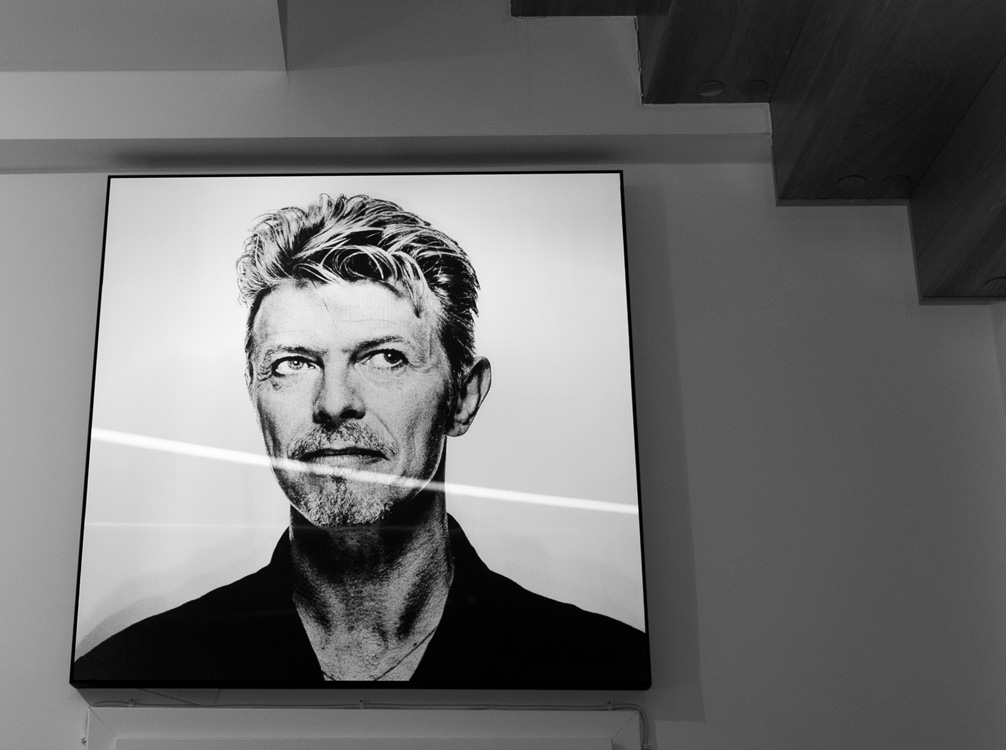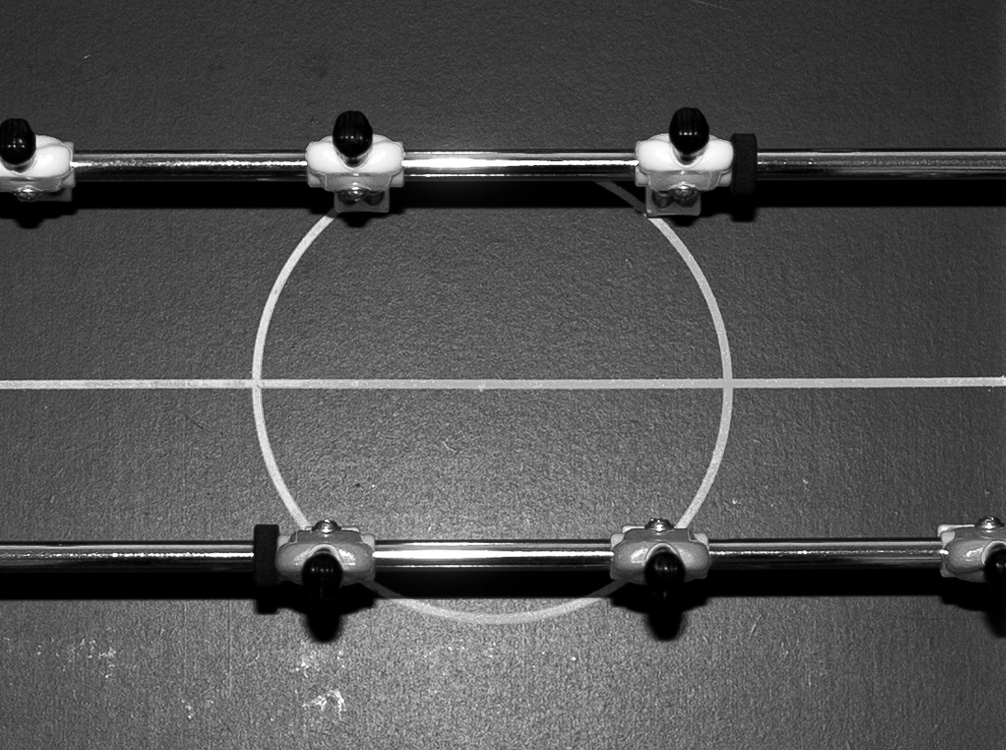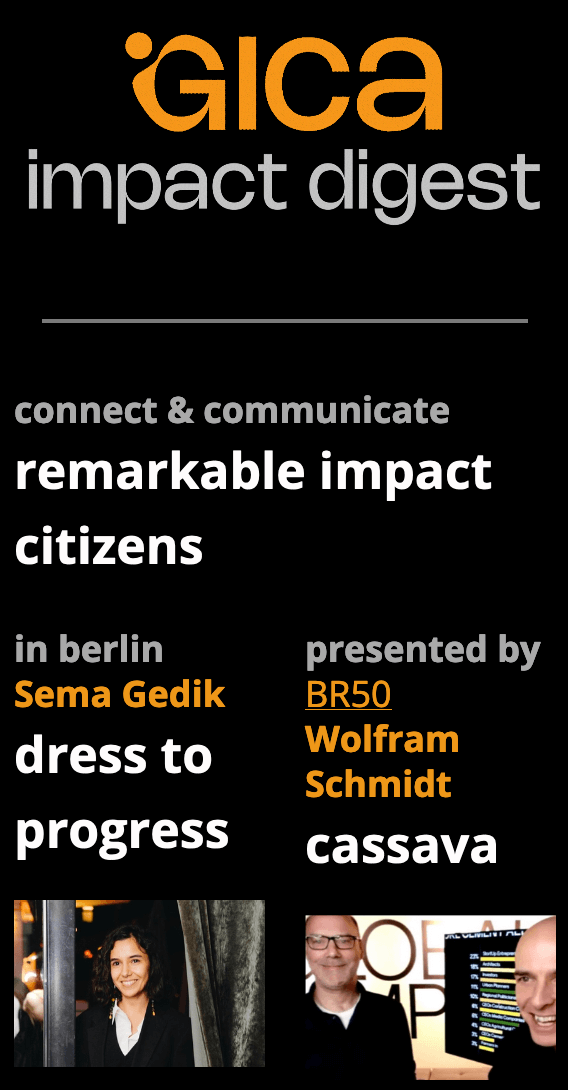Impact Investing turns investment as an approach into a positive one. That means I invest to positively contribute to ecological or social issues. – Andreas Rickert
GICA: What is the difference between Sustainable Investing and Impact Investing?
Andreas Rickert: Sustainable Investing and Impact Investing go hand in hand. They are on a continuum. One could simplify it by saying that it’s often synonymous with minimizing harm when discussing Sustainable Investing, especially ESG (Environment, Social, Governance). Impact Investing turns investment as an approach into a positive one. That means I invest to positively contribute to ecological or social issues. In other words, Impact Investing is even more sustainable than traditional sustainable investing.
GICA: Are there statistics on Impact Investing that could give us an idea of future developments?
Andreas Rickert: There need to be precise figures due to its lack of a clear definition. However, a few deductions can be made. The German Impact Investing initiative BII conducts a market study every two years, and according to that, we have approximately 6 billion euros invested in Impact Investing in Germany. While this is still relatively low, the clear trend is that it is growing in Germany.

GICA: Does the Impact Investing community have a different mentality or value system compared to the established investment/VC scene? If so, what are the differences?
Someone engaged in Impact Investing explicitly aims to positively impact the world.
Andreas Rickert: An Impact Investor is characterized by an evident normative worldview. They want to do something positive for the world, which might already differ from traditional investors. I don’t like to say that traditional investors don’t value this, but it’s not explicitly stated. Someone engaged in Impact Investing explicitly aims to positively impact the world.
GICA: Is the goal to make money as well or just to leave a positive impact?
Andreas Rickert: That’s an important question that is often discussed. Impact Investing is not philanthropy; it’s not charity. It’s really about having both a social or ecological impact and a financial return. Both goals are equally important.
GICA: Are there funds specialized in Impact Investing?
Andreas Rickert: Yes, there are now quite a few funds or investment opportunities in Impact Investing. Compared to the entire financial market – as we briefly mentioned in the figures – it’s still relatively small. But there are some significant funds now, particularly in the venture and climate sectors. Those are the two dominant areas. For example, the World Fund is the largest European Climate-Tech fund with a target volume of 350 million euros.
Then there’s Extantia, also a large fund in Climate Tech. These are two significant funds. There’s also Planet A, which is also a relatively large fund, and it’s nice to see such funds emerging in Germany. However, many funds don’t only focus on climate but also encompass all SDGs, addressing all Sustainable Development Goals. The Burning Issues Fund, for instance, is a smaller fund with a target volume of only 30 million euros, focusing on various social issues.

GICA: Do you have examples of successful Impact Investing?
Andreas Rickert: Fortunately, we can point to many successful cases by now. Generally, Impact Investing is possible in all asset classes. That means as an Impact Investor, you can invest in various forms of assets and across different thematic areas. Classic examples are in the climate sector: COzero, a CO2 management software that contributes to reducing CO2. Drilling solutions exist for utilizing alternative geothermal energy. But we also have areas focusing on hardware, such as E-Terry, a startup from the University of Erfurt. They have developed a small robot for sustainable agriculture, allowing precise weed removal without heavy pesticide use, sustainable planting, etc. There are many examples across hardware, software, and various topics.
GICA: How does the way partnerships are built differ in the Impact scene?
Impact investors often aim for systemic change. That means they don’t just want to help one person or a target group but really want to change entire systems

Andreas Rickert: Partnerships are indeed a goal in the field of Impact Investing. We even have the 17th SDG dedicated to partnerships. Two aspects are essential when thinking about partnerships. Impact investors often aim for systemic change. That means they don’t just want to help one person or a target group but really want to change entire systems, whether in the climate sector, education, etc. If you have these ambitions, achieving the goal can only be done by supporting partnerships between the government, business, and civil society. That is often implicit.
Another aspect of partnerships in Impact Investing is that the investor and the investee try to operate on an equal footing.
There is inherently a power imbalance – those with the money dominate, and those receiving the money are the ones who, to put it colloquially, must comply. In Impact Investing, there is a genuine effort to live out this partnership between investors and investees, mutually agreeing on goals and striving towards them. Partnerships are crucial in Impact Investing.
GICA: Why is Impact Investing often considered risky or seen as a pure money-burning investment, and is this portrayal accurate?
I believe that you can even invest more successfully and be more risk-averse when engaging in Impact Investing.
Andreas Rickert: No, that’s not correct. Impact Investing is really about investing sustainably, and sustainability extends to the financial level as well. This means that I achieve a sustainable impact, whether social or ecological, and I also sustainably get my money back. The history – and I need to provide some context – comes from a different background. Initially, when Impact Investing emerged, it was driven more by philanthropists. They took money and funded things where the outcomes were not precisely clear and where it was often accepted that there might be a lower financial return because the funds were more likely taken from the donation pool rather than the investment pool. This still exists.
There are still those in the Impact Investing space who engage in so-called “Blended Finance” – meaning, I might accept a lower financial return in exchange for a higher impact. That is also valid and is part of the portfolio or spectrum of Impact Investing. I – and many others now, I believe – am pushing the Impact Investing theme into the mainstream. That means if I want the entire capital market to move, I cannot accept having a lower financial return because then many investors will not participate. Therefore, in the regular world nowadays, Impact Investing does not mean burning money – quite the opposite. I believe that you can even invest more successfully and be more risk-averse when engaging in Impact Investing.

GICA: How old is the concept of Impact Investing?
Andreas Rickert: The concept of Impact Investing, as explicitly as we have it now, has been around for 15-20 years. Of course, it’s not entirely new because the basic idea of investing sustainably and value-based investing is not new. People have always done that: ethical investing, church investing, etc.
This is a very explicit way of using the term and, more importantly, managing it – not just saying it’s a good thing based on gut feeling but also looking at indicators, KPIs, and measuring instruments to see if there is both a financial and a social return – that is relatively new. I would say it has been around for about 20 years. A breakthrough was when there was a G7 task force where the seven major industrial nations came together and said: We want to understand better what Impact Investing means and how to promote it. That was about 15 years ago.
GICA: Were you part of that task force?
Andreas Rickert: Yes. They had national advisory boards in each country, and I was part of that in Germany at the time. That’s why I confidently claim to be one of the pioneers in Germany on this topic.
GICA: And now you are the president of the BII. What is the BII?
Andreas Rickert: The Bundesinitiative Impact Investing is a platform/organization/network for the topic of impact investing in Germany. I just spoke about the history of impact investing. There was the G7 task force on impact investing, and as part of this G7 task force, there was a so-called National Advisory Board in each of the G7 countries. These national organizations have been established in almost all countries, including Germany. From this group of experts, which once existed in the G7 Task Force, the Federal Initiative on Impact Investing was then developed to strengthen the whole topic. From the outset, it was designed as a multi-stakeholder platform to support and motivate as many players as possible in Germany on the subject of impact investing and to create the framework conditions for more impact investing.
GICA: Then there are seven of these task forces. Do the other six still exist?
Andreas Rickert: Yes, we’re in touch. In addition to the country organizations, there is an international umbrella organization, the Global Steering Group for Impact Investment. This is the international counterpart to which we are all connected. The nice thing about the Bundesinitiative Impact Investing is that although we have a focus on Germany – and that is important because, of course, many framework conditions are very national in nature, cultural issues, welfare, etc. – we always have a connection to the international level.
GICA: Do you never lose track of all your projects? Don’t you get stressed?
Andreas Rickert: I think one crucial point is that I really enjoy it. I go into all these things with a lot of energy simply because I feel it’s a privilege to be able to do it. Another point is that I naturally have great teams and work with great people. I’m not a micro-manager. I often don’t have that much work to do; I can just make things happen together with others.
I firmly believe that we need a transformation of our economy in order to have a sustainable future.
GICA: Here at GICA, we claim that impact companies will bring decisive solutions to global problems. What is your opinion on this?
In Germany, in particular, we have a vast ecosystem of impact start-ups – where there is a start-up, certainly with economic interests and expertise, but where the focus is also on solving problems.
Andreas Rickert: I firmly believe that we need a transformation of our economy in order to have a sustainable future. The question is, of course, where do such innovations come from? They will undoubtedly come from companies or the public sector, perhaps also from research, but start-ups will play a vital role. They already do. In Germany, in particular, we have a vast ecosystem of impact start-ups – where there is a start-up, certainly with economic interests and expertise, but where the focus is also on solving problems. That’s why these impact startups have a very central function. This is something that we also see globally, but I believe that we will also have a competitive advantage in the future.
GICA: In Germany?
Andreas Rickert: Yes, or Europe. Because many of the ingredients you need for this come together here. So, of course, if you want to have such start-ups, you first need a source where the ideas come from. We have a powerful university landscape. We now also have a generation of very entrepreneurial people growing up. And we have money. Even the best ideas are useless if you can’t finance them. We certainly have capital in Germany, be it through state investments or high-net-worth individuals who play an essential role. Apart from that, there is, of course, also money from institutional investors.
Money is available.
And we have a climate where this type of new economy is approved of and supported per se. I believe we have a broad consensus in society that sustainability is good. We don’t have a considerable ideological discussion about it, not like in the USA, where we are now suddenly finding that BlackRock is being told off by some large investors because they say that climate change is happening. We don’t have problems like that because we have always had a values-based economy. This ties in with the history of the social market economy. That’s why I believe that we have a perfect breeding ground in Germany for impact investing and impact start-ups to grow.
GICA: What would you recommend to investors who want to be successful with impact start-ups?
If someone wants to get into the whole field of impact investing, then the most important recommendation is to get started.
Andreas Rickert: If someone wants to get into the whole field of impact investing, then the most important recommendation is to get started. I’ve noticed that some people now shy away because it sounds so complicated; they think they don’t have the right frameworks or don’t know exactly how to do it. It’s not that complicated. It’s not rocket science. So get started and talk to people who already have experience or team up with players who know how impact investing works.
Before you start investing, the first step is to clarify things for yourself: What are the topics that actually interest me? Because I don’t usually say agnostically that I want to do something good, but I have issues that concern me. Education, health, climate…
I first have to decide where I like to get involved. There are investment opportunities in each of these areas. Once I have determined the topic, I need to be clear about it: What type of investment do I want? Which asset class do I want? It’s like in traditional investment, where I look at risk and return. Do I want something riskier or more risk-averse? If I want something risk-averse, then I might go for a bond. If I’m risk-averse, then I can do something on the topic of impact start-ups. And then I just look: What startups are there? There are also investor networks or funds that you can invest in. But the important thing for me is to get started. And when you begin, make it clear: What do you actually want? Then you’ll find a way.
GICA: Does the impact economy need another network? If so, what should the priorities of such a network be?
Andreas Rickert: Networks are helpful per se. I’m a big fan of them because we often find that players don’t come together, that we have fragmented approaches, isolated solutions, etc. The problems that arise when networks don’t work are manifold. That’s why I’m a big fan of networks. Of course, they shouldn’t be redundant. If you look at this scene in Germany, it is often the case that there is a particular focus on target groups. We have the Federal Initiative for Impact Investing, where we mainly represent the investor side, or we have SEND, the Social Entrepreneurship Netzwerk Deutschland, where we have the start-ups in this area, or we have the Federal Association of German Foundations, where the foundations are also involved. There are different networks, but they always tend to focus on specific areas.
What we don’t have at the moment is a cross-sector network that brings together everyone who is united by the topic of impact.
Neither on a national level, let alone on an international level. There is definitely a gap where a network would be beneficial.
It is essential to cooperate with other existing networks and not to compete with them.
GICA: Can you describe your path in the impact scene? What did you learn in the first place?
Andreas Rickert: I am a biologist. I have been working in the impact field for a very long time. Within biology, I specialize in ecology – so I can justifiably say that I’ve always wanted to make the world a little better. So, I really learned about sustainability right from the start and also carried it forward. Then, I worked at McKinsey for a long time. There, I understood how business works, especially in the public sector, because I worked on a lot of projects. I also have a stint at the World Bank. In this respect, I also understood how the big financiers for sustainability – because that includes the World Bank – actually tick and work. And as I said, I am also the person who founded PHINEO together with others. All of this combined puts me in an excellent position to be able to drive impact from a higher position or from a helicopter perspective.
GICA: What will PHINEO be doing in 10 years?
Andreas Rickert: That’s an excellent question. What PHINEO will undoubtedly have in ten years is what we already have as our mission. It’s relatively simple. We want there to be more engagement and better engagement. What we then do in concrete terms will undoubtedly be broader and more extensive. When I look at how we have expanded our activities in the 14 years since we were founded and how we have grown to almost 100 people, then I am confident that we will continue to make a difference in different areas and continue to rise. Not because growth is essential for a non-profit organization per se, but because there are still many challenges out there, and we will tackle them.
GICA: What do you do when you want to relax and switch off?
Andreas Rickert: For me, there is no clear separation between my private and professional life because many of my friends are also active in the impact sector. But I have three children, soon to be four. That certainly keeps me on my toes. Apart from that, I’m very much into electronic music. Berlin is a mecca for that, of course.
GICA: Where do you like to go dancing?
Andreas Rickert: Fortunately, we have a lot of good clubs in Berlin. My favorite clubs are Kater Blau and Sisyphos. But there are also lots of lovely smaller places.
Andreas Rickert at LinkedIn? Here!



